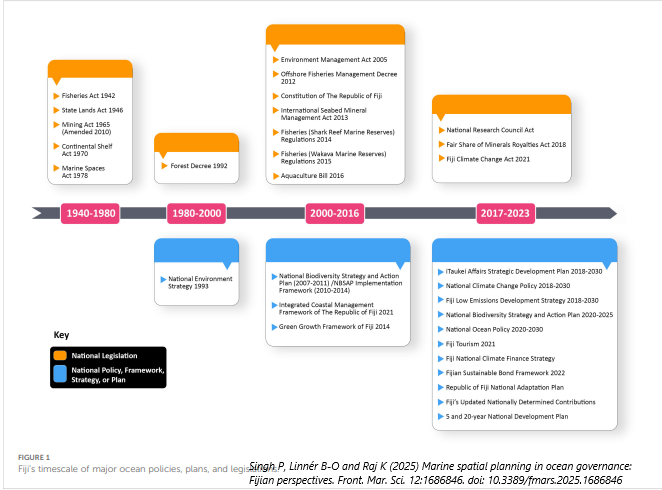
Marine Spatial Planning (MSP) is a globally established tool to support integrated ocean management. As Small Island Developing States (SIDS) embrace MSP, this study focuses on Fiji as it begins its MSP process alongside the implementation of newly established ocean-related policies and legislation. The study investigates whether MSP has the potential to address the challenges identified by various actors and, if so, to explore how this can be achieved. A mixed-methods case study approach was employed, combining analysis of national policy documents with semi-structured interviews involving key actors in Fiji’s ocean governance. Guided by collaborative governance theory, interview data were thematically analyzed using NVivo. The results indicate that MSP could serve as a viable governance tool capable of addressing institutional silos and overcoming coordination challenges. However, prevailing interagency conflicts, power imbalances between stakeholders, and ambiguity surrounding roles and responsibilities pose significant barriers to meaningful participation, risking the reinforcement of the status quo. Our findings highlight that effective leadership, inclusive governance arrangements, financial sustainability, and social capital are mutually reinforcing enablers of collaboration within MSP. Finally, we recommend a staged, evidence-based approach to institutional reform aligned with fiscal and political realities that offers the most viable pathway to building a legitimate, resilient, and durable MSP system.














